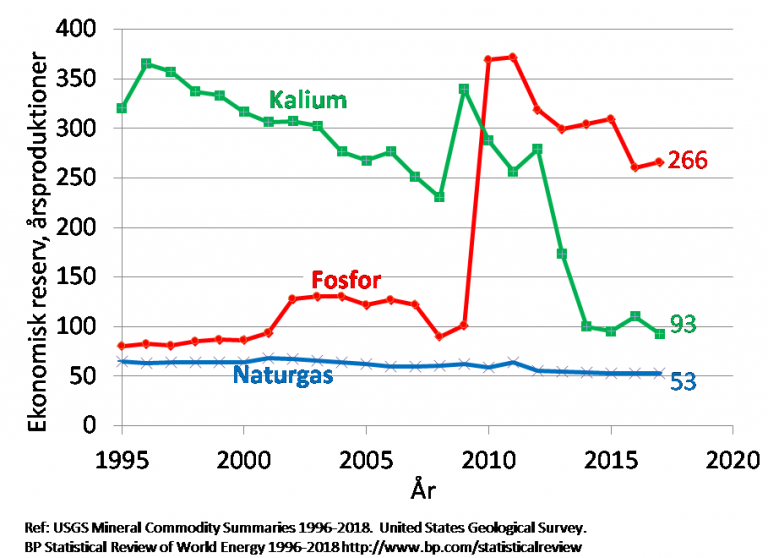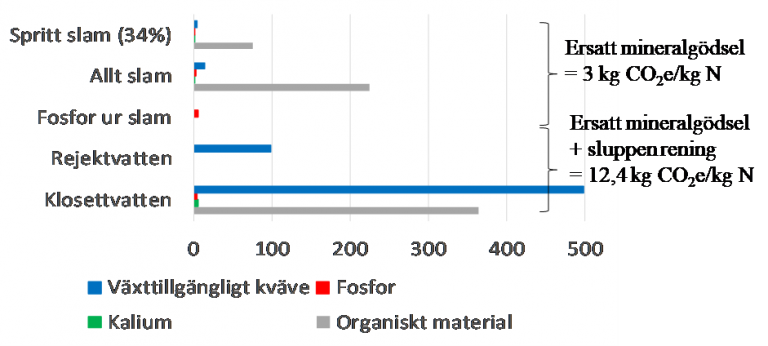Phosphorus has long been the highest priority when recovering plant nutrients from sewage. However, nitrogen should be given top priority according to a new evaluation of criteria linked to the use of non-renewable resources, vulnerability, and potentially reduced climate impact.
When prioritizing recovery from wastewater, phosphorus often emphasised as it is necessary for all life and as it is stated to soon run out (Peak phosphorus). There is reason to question this one-sided emphasis on phosphorus. The report “Phosphorus, nitrogen, potassium and sulphur – access, vulnerability and recovery from wastewater” reviews a) risks linked to the production of artificial fertilizers from non-renewable resources; b) the vulnerability of Swedish plant production to blocked import of artificial fertilizers; and c) potentially reduced climate impact in the recovery of plant nutrients from wastewater.
All investigated criteria show that the recovery of nitrogen from wastewater should be given highest prioritized, and significantly higher than the recovery of both phosphorus and potassium. According to its directives, the presently working governmental investigation on sewage sludge is obliged to submit a proposal focused on recycling of phosphorus from sewage sludge by 10 January 2020. The risk is obvious that the wastewater sector will be forced to devote considerable resources to phosphorus recovery, resources that should be invested in nitrogen recovery to best contribute towards increased sustainability for both the wastewater system and the entire food system.
For more information, read the report: Fosfor, kväve, kalium och svavel – tillgång, sårbarhet och återvinning från avlopp. Download from: https://pub.epsilon.slu.se/16407/
Contakt: Håkan Jönsson, Mobile: +46 736-52 23 30, Hakan.Jonsson@slu.se


